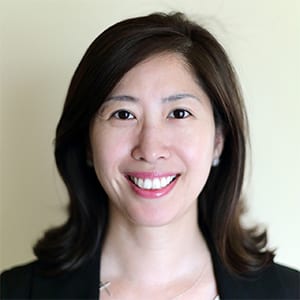Dr. Moonhee Cho Named Global Engagement Champion
 Dr. Moonhee Cho is an associate professor with the Tombras School of Advertising and Public Relations. She is currently teaching Public Relations 370, which teaches students about public relations campaigns through the use of case studies. This year Dr. Cho started the first Collaborative Online International Learning (COIL) project at the University of Tennessee, Knoxville.
Dr. Moonhee Cho is an associate professor with the Tombras School of Advertising and Public Relations. She is currently teaching Public Relations 370, which teaches students about public relations campaigns through the use of case studies. This year Dr. Cho started the first Collaborative Online International Learning (COIL) project at the University of Tennessee, Knoxville.
What was the process of getting into this program?
Rachel Rui from the Office of Asian Engagement reached out to me to let me know there was a great opportunity to engage with universities in Central Asia. Even though I am from Asia, I have zero knowledge about Central Asia. I was really excited, so I started the application. It was a competitive process with ten faculty members from the United States and ten from Central Asia. On the first or second week of January, we got selected. And then, based on our interest and the topics, we were matched up with the partner university.
Why do you think this experience is important for students?
This COIL Program is really important. They have four dimensions to focus on. First, broaden your horizons and international experience. Second, recognizing diverse perspectives. Third communicating ideas. And then fourth, civic engagement across cultures. It’s about expanding our horizons.
Most of the big companies in the United States operate everywhere, so international communication is a really big deal. One day, our students might work for one of these companies and communicate with Asian countries. Every culture has different meanings, gestures, and interprets things in different ways. So, I just want to give our students more confidence and show that we are living in a networked society. It gives them a chance to see commonalities and different perspectives. I want our students to have a global mindset. We are communicators so that really matters and is the core focus of our class.
Why do you think this program works for Public Relations 370?
We learn from cases, whether they are successful or fail. We are talking about investor relations, community relations, activist groups, and more. So, this is a context to get the principles and apply them to different cases. Or vice versa, we can see the case and figure out the takeaways. We can learn from the cases a lot. Maybe one specific case works in this setting, but in another international context, it doesn’t work. There’s no one size fits all. We always have to prepare for unexpected challenges.
What is the benefit of this kind of program?
So many universities are really interested in this type of engagement because it’s so much cheaper than putting students through study abroad, and you can meet students from any country. We don’t have any study abroad programs in CCI going to Asia. They are all focused on Europe. The pandemic has made it so hard to be exposed to different cultures, and because of the pandemic, students are thinking why do we have to stay at university. I thought about what is a niche opportunity I can bring to my students and the UT community. So, that was one of the starting points. I wanted to give the more tangible and hands-on experience.
How do you think this program will impact students’ futures and the future of the department?
Tennessee is one of the flagship universities. Our students are so bright and eager to learn. Their futures are so bright and open. Hopefully, our students, once they are graduating, will be more open-minded and more conscious about what’s going on around the world. Then, they will easily find opportunities and easily communicate with people. I hope this little experience will make a big impact. That is what I want to encourage. As an educator, I am looking for how I can help our students keep up their international competencies and cultural diversity. Having an ongoing COIL program will allow for students to have lots of opportunities to get global experience. I will not see the big picture, but I hope that this is what students will get and then pay it forward.
On Feb. 19, the students got to meet each other over Zoom and began getting to know each other. In class, her students have started to partner with students from Uzbekistan to discuss the similarities and differences between sustainability communications in the separate countries. Dr. Cho will travel to Uzbekistan later this year for research and to provide new opportunities to advertising and public relations majors.
Visit the Center for Global Engagement for more about this program.